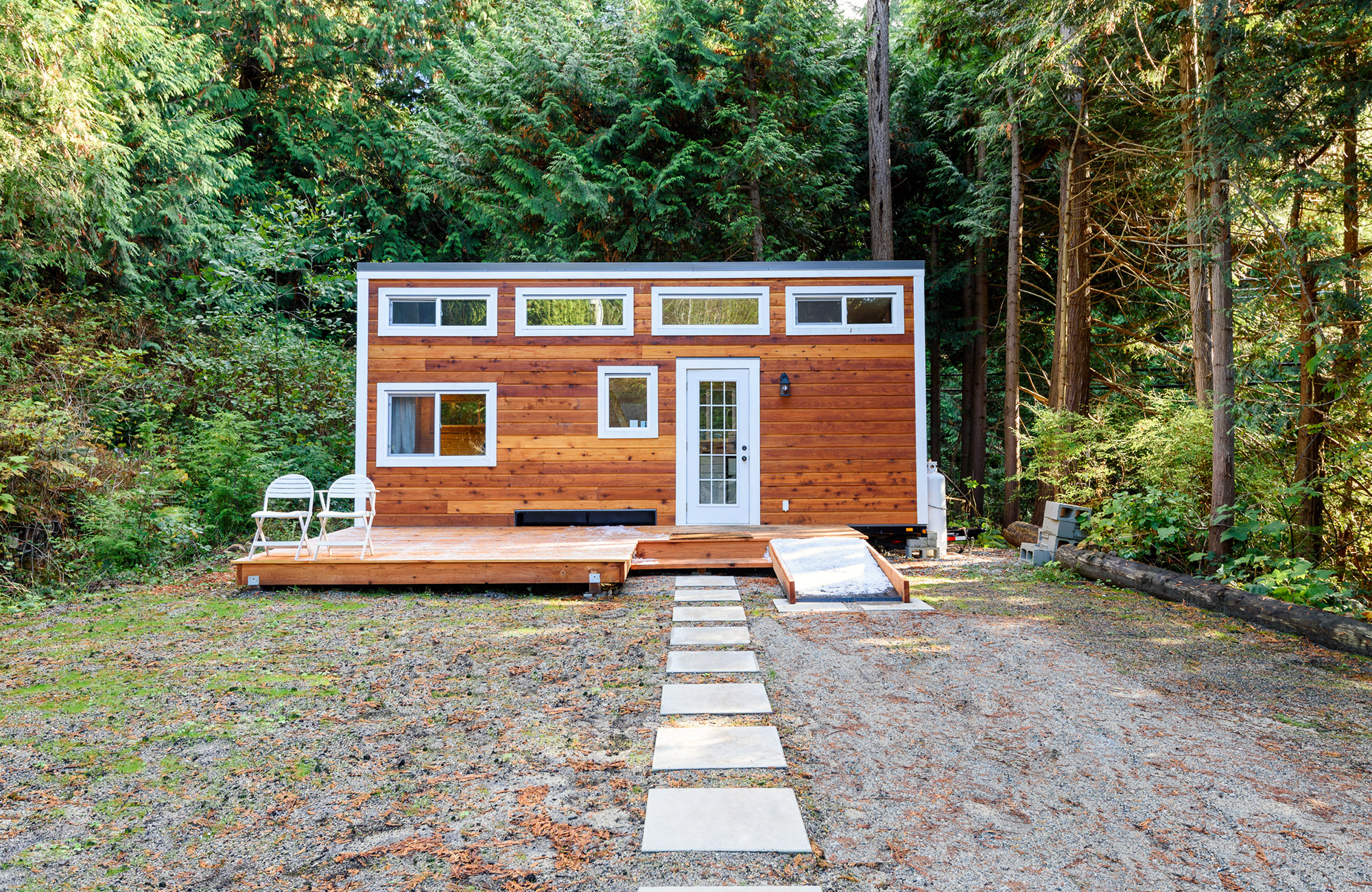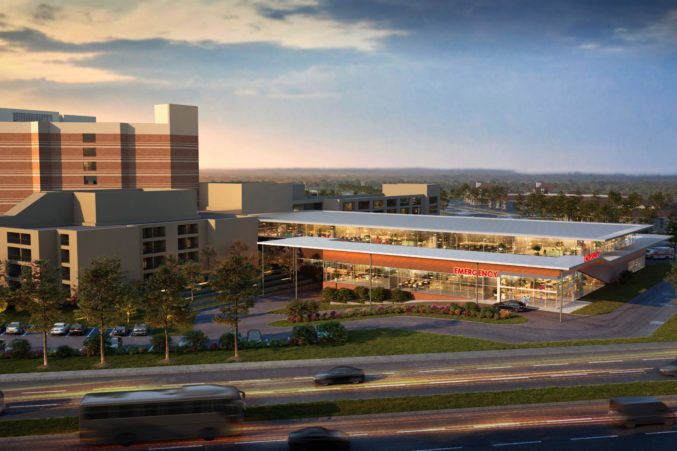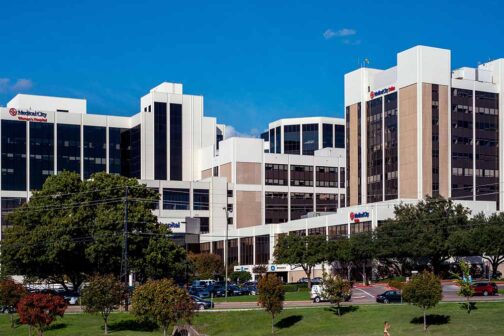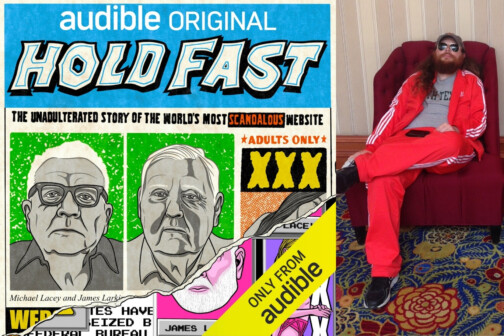A majority of Dallas-area homeowners seem to be on board with modest measures to increase density, voicing support for accessory dwelling units, duplexes, and triplexes in residential neighborhoods, a new Zillow survey says. They were less enthusiastic when asked whether they would welcome them onto their own blocks.
Dallas-Fort Worth was one of 26 metro areas researchers surveyed by analyzing the demand for affordable housing in an extremely competitive market that is driving rents to record levels. Zillow explored how that could be addressed in residential areas in ways that don’t include multi-family, high density structures.
Nationally, the report found that most homeowners (73 percent) could support measures that allowed two units on a single family lot. In Dallas, those surveyed were more supportive of ADUs (70 percent) as opposed to duplexes and triplexes (60 percent.) Eighty percent were fine with either option.
That doesn’t mean they didn’t have concerns. Not quite half of Dallas homeowners surveyed were worried about the impact these so-called middle density measures could have on their property values. Almost 60 percent of respondents were concerned about parking and traffic.
When it came to small- or medium-sized apartments, only 55 percent of Dallas homeowners were in favor of adding them to residential areas — even though 64 percent felt it would have a positive impact on affordable housing. In other words — many people know we need more affordable, workforce housing and are supportive, in theory, as long as it’s not in their neighborhood.
Also worth noting is the increase in how many more Dallasites are OK with putting two dwellings on one single-family lot — in 2019, 51 percent were in favor of it, but in 2021, that number jumped 12 points to 63 percent.
But the development of “middle-income” housing is hampered in Dallas by many issues.
Permitting delays and land prices are some of the biggest reasons multi-family tends to be the go-to when Dallas considers density. Figures from The Real Estate Council indicate that investors want a yield of between 6.5 percent and 7 percent — which is part of the reason why you see so many luxury multifamily units going up. This also factors into why even the rent on “affordable” apartments often outpaces what middle-income earners make.
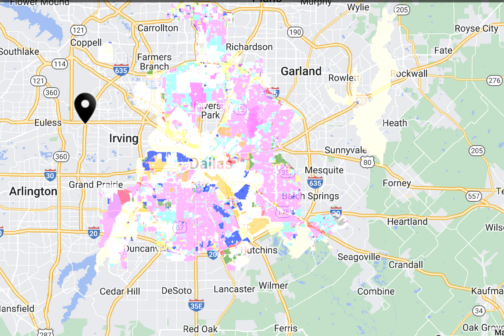
Another barrier to more mid-density housing exists in Dallas’ zoning. About around 60 percent of all land is zoned for detached, single-family housing, according to Zoneomics.com. (That’s the pink in the map above.)
Elsewhere, the city requires neighborhoods to opt-in to allow ADUs to be built by-right, adding another layer of bureaucracy that could push homeowners away. In 2020, two years after the city passed its ADU ordinance, the Zoning Ordinance Advisory Committee found that only two ADUs had been approved for rent in the city and no neighborhood had requested the necessary overlay to allow homeowners to build them. This comes with a caveat: there are almost certainly more ADUs being built than this, but the homeowners aren’t getting building permits to do so.
There is also a larger disagreement on what exactly “affordable” means.
For some, it’s interchangeable with “low-income housing.” For others, it means exactly what it says: affordable housing must be affordable for the average person to live here. The federal government interprets that as housing that accounts for no more than a third of a person’s income.
A 2018 comprehensive housing policy released by the city of Dallas found the city was short about 20,000 affordable units, and six out of every 10 Dallas residents spent more than a third of their paycheck on rent — which sails past the federal benchmark for what “affordable” is.
Since 2011, Texas has lost almost half its affordable rentals, according to the Joint Center for Housing Studies at Harvard University. As of 2019, the share of units renting for less than $600 had dropped to about 15 percent of the state’s housing stock.
According to the National Low Income Housing Coalition 2021 Out of Reach report, a person making minimum wage in Dallas (where more than 40 percent of all households are renters) would need to work 120 hours a week to afford a modestly-priced one bedroom apartment. To afford even a studio apartment, you’d need to make at least $41,160 per year.
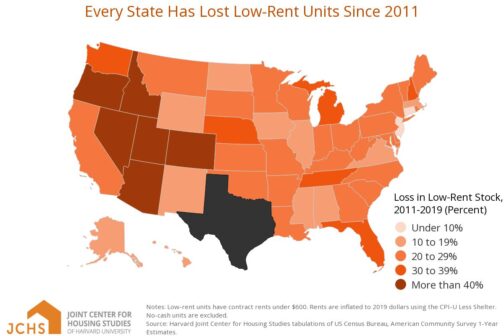
Which brings us back to the feasibility of back-houses or garage apartments (ADUs) as a method to address affordable housing in Dallas. Real estate search site Homelight’s 2021 Top Agent Insights report found that in the South Central region (which is where they’ve placed Texas), 67 percent of real estate agents surveyed said most ADUs were being used by homeowners to house aging parents or as guest houses. Only 38 percent reported they were being used as rental units.
There’s also a question as to how many of these ADUs are being used for long-term rentals versus short-term. If you look at any discussion about Airbnb and the like, you will regularly see people discussing the potential impact they have on affordable housing. But a study by Carnegie Mellon University indicates that the issue is more complicated than that.
There are roughly 1.9 million rental units in the Dallas-Fort Worth-Arlington Metropolitan Statistical Area, the study says, and about 0.48 percent are listed as short-term rentals. By and large, more than 95 percent of all rentals are long-term. For context, the rate of cannibalization is much higher in San Francisco, where almost 3.5 percent of its rental units are short-term rentals. In New York City, 2.7 percent of its rentals are short-term.
The study found that short-term rentals can cause a mild decrease in the long-term rental supply as landlords opt to switch from long-term to short-term tenants. But it also took into account the fact that the income provided to landlords—and who those landlords are—was also something to consider before laying a ton of blame on property owners that choose the short-term market over long-term.
They wrote:
“We find suggestive evidence that Airbnb does raise affordable housing concerns, as the rental supply reduction is the highest among affordable units. However, the market expansion effect is also the largest for affordable units, as the fraction of non-switchers is the largest for affordable units on Airbnb. Although Airbnb harms local renters by reducing affordable rental supply, it also serves as a valuable income source and benefits local hosts who own affordable units; these hosts are likely to be less economically advantaged than hosts who own expensive units and benefit more from additional income sources.”
The study also looks at the inequity issues that surround the short-term rental market for both renters and landlords. Future studies, the Carnegie Mellon researchers said, will also take a look at what impact it is having on the housing market — specifically, how it affects affordable homes that are for sale.
Get the D Brief Newsletter
Author



